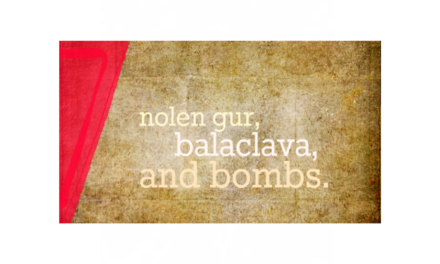They started cutting the house the day after Holi, so that they could finish before the monsoon came. She sat on her bed, legs crossed, staring at the zigzag of blue and dull pink on the fading green counterpane, almost meditative, as she heard the workers arrive. It was two minutes after nine.
Usually in Calcutta, nothing happened on time. Bini Babu left for work at ten thirty every day, his office started at nine thirty. The cook rarely entered the house before eleven, though she was supposed to be there by eight thirty. There was always some excuse. Her mother had fallen sick; her daughter had to be taken to school as her husband was away; a dog had chased her so she’d missed her train.
The Calcutta Metro had taken such a long time to start operations, that people couldn’t believe it indeed had at last; that there would no longer be stretches of uneven road, construction, and ditches to fall into and practically die, right on the main thoroughfare, all the way from Rashbehari crossing to Chittaranjan and even beyond that. Mou had said, she had become so used to that torn look of the road, the wild ache in it, she almost missed it. Mou tended to be dramatic. No, melodramatic. She wanted to be a writer.
Probha smiled to herself. Even summer had no sense of time as it settled into the crowded lanes and the markets, the dusty desultory buildings, the crush of bastis, the pavements where people lived, ate, slept, bathed, cooked, made love, defecated, gave birth. Almost every year summer tarried, it left days after it was supposed to go.
But the men who would cut her house were punctual. Maybe that was a good sign.
***
“Probha! Probha! Where are the toothpicks?” he sounded impatient.
“Hoonh?” Probha frowned, startled… he used to ask for toothpicks as if they were the most important things in the world. She’d get irritated, but he never saw any reason to change his tone.
“Probha! Stop sitting there, get ready and leave the house. You know it’s dangerous,” he was talking rapidly.
He wasn’t asking for toothpicks, Probha realised. He was asking for something else.
She looked at her big toe, it was quite still. Quite unlike itself today.
“Probha!! Can’t you hear what iIm saying!” Ashutosh was now angry.
Probha leaned back against the smooth Burma teak headboard. The large double bed – well it was really not one bed, there were two extra wide single beds next to one another – was a gift from her parents when they got married. Ashutosh always grumbled about its size and had refused to cart it to Golabgunj. His home was already furnished, the company gave everything, he’d said. So, the bed had stayed here in the house.
Probha hadn’t found any need to quarrel over a bed. It would be used by Ashutosh’s parents or their guests… she didn’t mind. And the house was large enough to accommodate it.
Besides, the bed with its fine curves and Art Deco touches looked very comfortable in this rambling spacious manor-like home that Ashutosh’s great grandfather had built back in the late eighteen hundreds, no one really knew exactly when. Protap Narayan Mitter had made his money in the shipping business. He had become wealthy at a young age. His wife Shubhro Jyotsna Debi and he had five children… one son and four daughters. Everything was going well.
Then there came a strange day in Protap Narayan’s life. He was struck by remorse at the sight of the stevedores and coolies toiling under the harsh sun, ragged and undernourished most of them. It occurred to him also, that people such as himself, who were willing to do business with the British – in fact, had made a fortune thanks to them and their plundering – were as much to blame, if not more, for the state of his country and her people.
He hadn’t been able to bring himself to carry on with his way of life any more. He’d sold everything, made this house for his family, and left home one day, never to be seen again. Some people said, he’d become a sadhu, others said, the British had killed him; still others believed, he’d gone to the Himalayas and taken a vow of silence. No one would ever know in reality what had transpired and where Protap Narayan had vanished to.
Before leaving, Protap Narayan had deposited a good amount of money in the Imperial Bank of India in his wife’s name. In time, the daughters got married and went to their in laws’ homes; his son tied the knot and had many children. Some of them died at a young age or soon after birth, but five boys and two girls survived. Ashutosh’s father was the second son.
The family continued to live in the house. Everyone referred to it as Shyam Baganer Bari, the house at Shyam Bagan. though bagan means garden, Shyam Bagan was not really that, it was once a little village in the south of Calcutta, which had rapidly urbanised during a vibrant economic spell. The house of Protap Narayan Mitter was one of the oldest in the area and well known.
The last person to keep track of things like when the house had been built, how much it had cost, who the architects and contractors were, etc., was Mr Guin, Ashutosh’s father’s clerk. After Mr Guin passed away, and Ashutosh’s father threw away all the papers, by mistake, during one of his periodic house cleaning bouts, all that information was lost.
The engineers had asked her again and again if she had any details. It would help them assess things. How strong were the walls, how stable the foundation, would the structure bear the pressure… they had so many things they had to examine, calculate.
Probha looked up at the ceiling twenty-two feet above the red oxide floor. Cobwebs clung to the corners and clambered across the painted iron beams. Murari hadn’t come this month. Another one who was never on time. Murari cleaned cobwebs, that was his job; he was the neighbourhood’s cobweb cleaner for years. Nowadays of course, with the new flats coming up everywhere and their low ceilings, he didn’t have that many houses to go to. Yet, he hadn’t come. She knew he had been drinking much more lately too. She’d cut his wage, she decided, her lips pursing.
“Probha, stop ignoring me,” Ashutosh’s voice was tense and low. He meant to get her attention.
Probha gazed out of the window at the far end of the room. there was a whole row of windows there, between the pillars at each end. Where the pillars met the cornice at the top, they flared out forming ornate capitals. Cleaning the cobwebs off them was such a task.
“I am not going anywhere,” she said.
“Why are you so stubborn?” Was he gritting his teeth?
Probha picked up the magazine lying next to her. It was an old copy of Desh. her sister in law had said, the article on Ashapoorna Debi was very good.
“Probha,” his voice seemed to soften, “You know it’s dangerous… you can’t be in the house while they are breaking its roof…”
“They’re not breaking…” Probha shot back, her voice rising sharply.
Then she took a pause before continuing more calmly, “They are just cutting the house. Thakur-po…” she paused once more, “…No, not just him… the engineers have said, it’s perfectly safe, nothing will happen.”
Ashutosh had four brothers, all younger than him. She had always called them Thakur-po as was the custom; Thakur was a respected elder male, while po was the son. The oldest one was Boro Thakur-po, then came Mejo Thakur-po, then Ranga and Nau Thakur-po. Ranga and Nau Thakur-po were still in school when she’d got married.
“Safe?” again Ashutosh’s voice flared up, “Probha! Are you mad? You’re an educated woman… M.A. pass… you think this is safe? They’re going to hack the structure! Cut it from roof to plinth along that wall right behind you, and you believe this can be done without any mishaps, without any accidents??!! That not even one of those… those…” he was exasperated… “Cobwebs!!” he burst out, “… will fall on your stubborn, obdurate head!”
“My stubborn, obdurate head?!!” Probha almost laughed, “You’re saying that! And what about you? How could you imagine it would be all right, you’d be…” she stopped mid-sentence and looked at her magazine. She could feel her breath on her upper lip. It was hot.
It was real.
He was not.
he couldn’t be… for he was gone.
Ashutosh had gone. He hadn’t listened, he hadn’t answered her questions. He had rushed out. She hadn’t been able to keep him safe. Yes, she was intelligent, she had known what could happen.
“Probha, please don’t do this,” he seemed to be pleading.
There was a loud bang overhead. The house shook.
***
The children were growing up, they needed more space. Also, the the land was appreciating in price. This would be the right time to do something about the empty bits lying around the house, there were quite a few kathas there, Ranga and Nau Thakur-po had said as they ate the phuchkas.
Probha had agreed.
The phuchka wallah, the vendor of this delightful Calcutta street food, had come over as usual, carrying his basket heaped with puffed up phuchkas, the bag of condiments and other necessities, and the tall portable cane stand. It made economic sense for him really, rather than waiting at the park nearby for customers. The entire family and the regular group of friends, who dropped in almost every evening, crowded around with their disposable sal leaf bowls eagerly thrust out. The crisp, crackling phuchkas made of flour and sooji, stuffed with a potato-chickpea mix, and dunked in spicy, tangy tamarind water, disappeared in no time; and the phuchka wallah could happily go home.
All four brothers wanted to add a few floors to their side of the house and build new flats to sell. That day, the phuchka had been particularly crunchy, and the tamarind water had just the right tinge of green chilli.
Afterwards, while drinking tea, Ranga Thakur-po had taken a long drag on his cigarette and said thoughtfully, “The corporation has a new rule, Boudi. There must be space between two properties for them to give us permission to build anything new.”
Probha had said without thinking, “But how will they do that? We live in the same house…”
Years ago, there had been amicable partition between all the heirs of Protap Narayan. Ashutosh had insisted on it actually, seeing the way estate duty laws were going. Only three of Protap Narayan’s five grandsons from his son had married and had heirs. The remaining two had both died by the time Ashutosh got his uncles and father to agree to the partition. Ashutosh’s brothers were in fact his uncles’ sons. They had grown up together. To him they were always his brothers, not his cousins.
They divided the house by simply putting up walls where needed and making doors in those walls to make sure they were not cut off from each other. Ashutosh’s father’s portion was at one end of the edifice.
Ranga Thakur-po took another drag and blew out the smoke slowly, “That’s the thing, Boudi… that’s the thing… well, the engineers are saying we can separate your portion of the house from ours…”
“Engineers?” Probha was taken aback. What engineers? If the corporation had this rule, how could they build?…. Had they already consulted engineers?
They’d always addressed her as Boudi: literally, Bou, bride; and Di, elder sister. That’s what you called the wife of an elder brother or cousin.
***
She had listened to what the two of them had to say. It was clear to her, if she refused, they wouldn’t be able to go ahead with their plans. She also knew she could not join them and build on her land as well. As firstly, she’d never thought about it; and secondly, she didn’t have the wherewithal. The insurance money was almost entirely gone, now there was just the small pension left.
Rojot was in his fifth year of college. He would get a job soon. Her younger one, Rajeeb, had just finished school. He wanted to study law. She hoped she would be able to manage that, colleges were becoming expensive these days.
She had known even without taking the few days she’d asked for, what her answer would be.
Her mother in law had passed away just the year before. Probha was glad she wouldn’t have to see this, she had seen enough in her life.
Probha asked her brothers in law to start the project once Rajeeb left to join college in Bangalore. She also told them not to mention anything to her sons or anyone else in the family.
The engineers met her to explain how the building would be cleaved, leaving her part intact, and demolishing a portion of the rest of the structure to clear a space between the two, it would serve as a narrow passage with a perimeter wall along the edge as required by the municipality corporation.
Nothing would happen to her home, they assured her, but just to be on the safe side, she should move out while work was going on. it would take not more than a couple of months to complete the task…
***
Probha had known, lying prone on this very bed with its headboard against the wall to be cut, staring up at the ceiling, that she would not be moving anywhere.
She had accepted many things in her life believing perhaps what had to happen would happen. You had no say in it.
After years, she’d thought about her daughter, whom she had lost in the seventh month of her pregnancy. She’d fallen down on ice in Kashmir. She was not supposed to be walking on the ice, but there had been a landslide, they had had to walk across a stretch to reach the airport. They hadn’t made it to the airport in time. The plane had taken off.
Later they’d received news that the plane had crashed, everyone on board had died. People had said, it was her luck that had saved her. Two weeks later, she’d had the miscarriage.
Probha had let her thoughts wander. There had been so many things that had happened all through life, at times she had fervently wished she had some control. Some say, at least.
She remembered that morning. How hard she had tried to stop Ashutosh. He wouldn’t listen. She hadn’t been able to do a thing about it. He had left. She had waited for hours.
Abruptly, the wait had ended. Their driver had rushed in, tears streaming down his cheeks, a frenzy in his voice, “Killed! Killed! Mari dilo!” Ashutosh wasn’t coming back.
Somewhere in the middle of her thoughts, she had decided, she would not be going anywhere. She’d stay right here. Here in her home, which now belonged to her, where this silly bed of hers had been waiting for her all the time.
If the house had to fall on her head and finish her off, well, so be it. But she was staying. She’d even grinned to herself remembering Asterix and the perennial fear of the sky falling on one’s head.
The sky had fallen on her head. But she was still here. Here in Shyam Baganer Bari, which her great grandfather in law had built for his family. Here where the cobwebs were out of reach.
***
The workers were diligent and came on time every day. The house was cut in layers, from top to bottom. If you hadn’t seen such a thing actually coming about, you’d never believe it could be done.
Probha had the engineers help her move the kitchen to the outhouse, so the cook wouldn’t have to work inside the house. She told Rojot and Rajeeb to go to Bombay for their summer break and come to Calcutta later during Diwali. For those few months, she entertained her guests in one of the tiny rooms of the outhouse. The young woman who stayed with her and ran errands was told to help the cook while the workers were around, and sent to sleep at her sister in law’s home.
Probha shouted at Murari when he finally showed up, but she didn’t let him in, she just paid him. She said, she’d let the cobwebs gather for three months, so he’d have a really tough time cleaning.
The house remained sturdy and resilient through all the breaking and hammering and crushing. Where it got this strength from no one knew. Perhaps Protap Narayan’s realisation, Ashutosh’s innocent love and clear thinking, his mother’s forbearance, and Probha’s grit had something to do with it.
But if you said that to Probha, she’d shrug and give a funny little smile, then ask, “Are you also trying to become a writer like Mou?”
Mou was her favourite niece. Mejo Thakur-po’s daughter. The one with a penchant for melodrama.
At night, sometimes Probha and Ashutosh argued, but she was determined to have the last word this time.
***
It’s been almost thirty years since then. Shyam Baganer Bari isn’t there any more. There are flats where once the house Protap Narayan built stood. But even today, if you walk along one side of the perimeter wall, you’ll see parts of old pillars at the ends. And you’ll think of Probha, sitting on her bed, looking up at the ceiling, as her home was cut by punctual workers.
And she talked to Ashutosh, told him this was her decision, she wouldn’t listen to him, and change her mind.
……………………………………………………………………………………………………………………………………………
My mother actually lived in our house while it was “cut” to make way for new construction. My brother as well. The cook and house maid never fussed. They carried on working as if nothing was amiss. I still wonder how they all did it. There really was no option I suppose, one couldn’t just move in with someone for months, nor did my mother have the money to pack away everything and rent a place or check into a hotel. When i think of all the things that happen… and yes, it has been nearly thirty years. this story is dedicated to all of them.
Katha or kattha or cottah is a unit of measuring land area. Twenty kathas make a Bigha. I believe, it’s not a case of simple multiplication or division when it comes to converting a katha to square foot or square metre. The katha in West Bengal doesn’t have the same dimensions as the one in Bihar or Assam or Bangladesh. Why should things be standardized anyway; we aren’t, nor is the size of phuchka.





